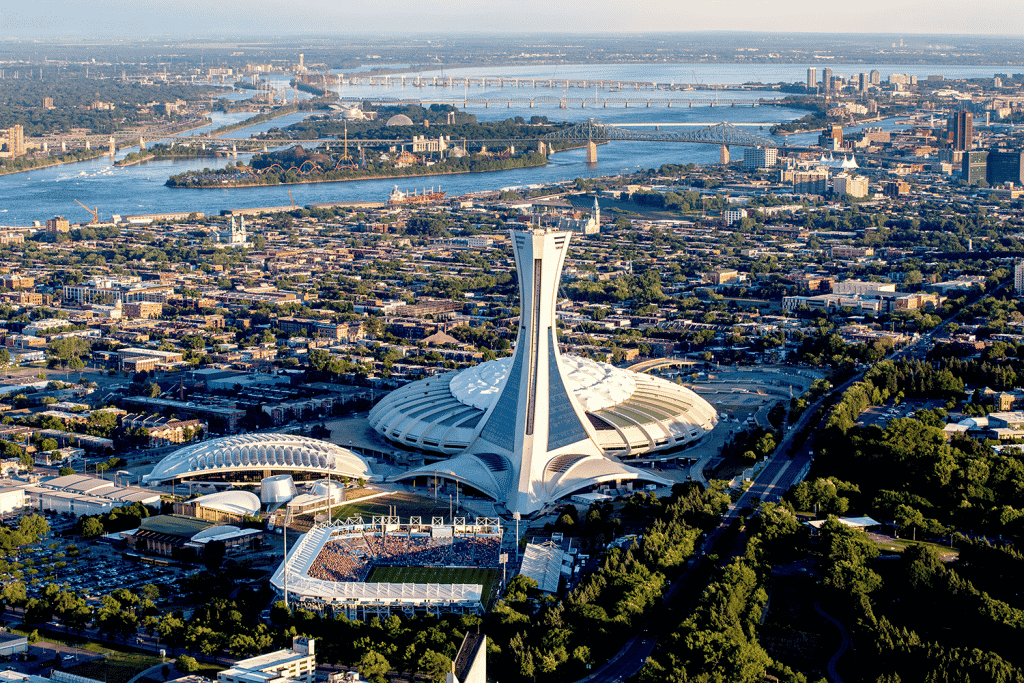Adjust the text size as needed by clicking the buttons below.
Adjust the visual style of the site by selecting the one that suits you best from the choices available below:
Adjust the text size as needed by clicking the buttons below.
Adjust the visual style of the site by selecting the one that suits you best from the choices available below:
Support Montréal as the next host city for ICOPA and help the city become greener than ever.
Montréal is a main hub for parasitology investigation with one of the top universities in the world in biomedical research. The committee of national and international experts with experience in hosting international scientific conferences has been organized in order to establish the scientific agenda, formulate topics for sessions, invite speakers, discussants and session chairs, specify abstract categories, and provide general advice.
Theme, congress program, outreach, pre- and post-activities, marketing plan and potential sponsors… all the right ingredients to ensure the success of Montréal ICOPA XVI – 16th International Congress of Parasitology 2026.
If Montréal wins the bid to host ICOPA XVI, we pledges to support a project of social reforestation in a Montréal neighbourhood. Our donation will make a real difference as all trees will be planted in a community project. This will help to:

Dr. Martin Olivier, Ph.D. is Professor of Microbiology and Immunology at McGill University. He is an internationally recognized leader in the field of host-parasite interactions, evasion mechanisms and innate immunity. He published >150 peer-reviewed papers. He won several national and international awards (e.g. Burroughs Wellcome Fund). His actual interest is the study of Leishmania exosomes in the modulation of host immune response and inflammation.

Dr. Ndao is a veterinary from Senegal who has completed his DVM, MSc and PhD in international health and tropical diseases at the Institute of Tropical Medicine in Antwerp. He is currently Associate Professor at McGill University and has been the Director of the Canadian National Reference Centre for Parasitology (NRCP) since 2002. Further credentials include sitting on the Expert Review Committee for the Canadian Biosafety Standards and Guidelines and co-chairing the Food and Environmental Parasitology Network (Health Canada). He has been a member of the committee of the World Federation of Parasitologists since 2014.

Dr. Barbara Papadopoulou, B. Pharm., M.Sc., Ph.D., FCAHS is a Full Professor in the Department of Microbiology-Infectious Disease and Immunology of the Faculty of Medicine at Université Laval (Québec, Canada) and the Director of the Axis of Infectious Diseases and Immunity of the CHU de Québec Research Center. She is Canada’s leading molecular parasitologist, with an extensive record of original contributions in the field of Leishmania gene regulation, pathogenesis and vaccine development, which are highly regarded by the Leishmania international community.

Dr. Albert Descoteaux is a Professor at the INRS – Institut Armand-Frappier, where he investigates the biology of the Leishmania parasitophorous vacuole and immune evasion mechanism(s) used by this parasite. He is also a visiting scientist at the Fiocruz Bahia institute (Salvador, Brazil) and holder of the Canada Research Chair in Biology of Intracellular Parasitism.

Dr. Christopher Fernandez-Prada DVM, M.Sc., Ph.D. is a molecular parasitologist focused on the study of zoonotic protozoan parasites. His main fields of research include drug resistance, vaccine development and host-parasite interactions. He holds an Assistant Professor position in Veterinary Parasitology at Université de Montréal. He is the Scientific Director of the Diagnostic Parasitology Laboratory.

Dr. Hélène Carabin is a Professor of Infectious Disease Epidemiology at the Université de Montréal. She is the Tier 1 Canada Research Chair in Epidemiology and One Health, directs the Research Group on Epidemiology of Zoonoses and Public Health (GREZOSP) and co-directs two pan-Canadian networks: the One Health Modeling Network on emerging infectious diseases (OMNI-REUNIS) and the One Health Network on the global Governance of Infectious Diseases and AMR. She has published >140 articles in peer reviewed journals. Her main interest in improving epidemiological designs to improve the understanding of the risk factors for and control of zoonotic infections. She is an Editor of Parasitology and a Deputy Editor of PLoS NTDs.

Dr. Uzonna, DVM, Ph.D. is a Professor in the Departments of Immunology and Medical Microbiology and currently the Associate Dean (Research) at the Max Rady College of Medicine, University of Manitoba. His research program focuses on understanding host-protozoan parasites interaction with particular interest on the cellular and molecular mechanisms that regulate induction, maintenance and loss of protective immunity against Leishmania parasites. The goal is to develop effective vaccines and/or vaccination strategies against these infections. He has won numerous awards and published over 110 peer-reviewed articles.

Dr. Petra Rohrbach, BSc, MSc, PhD, is a Professor in the Institute of Parasitology at McGill University. Her research encompasses the study of extracellular vesicles released from the blood stages of the malaria parasite Plasmodium falciparum, as well as the cellular and molecular mechanisms of drug resistance. The work focuses on understanding how malaria alters the structure and physiology of the host red blood cell that contributes to the natural resistance of malaria in endemic regions.

Dr. David Langlais
McGill University

Dr. Mary Stevenson
McGill University

Dr. Simona Stäger
INRS/IAF

Dr. Maritza Jaramillo
INRS/IAF

Dr. Dave Richard
Université Laval

Building on Montréal’s reputation as one of the best convention cities in the world, we are confident that the ICOPA XVI – 16th International Congress of Parasitology will attract a notably large number of delegates from around the world!

Montréal is a hub for scientific meetings
#1 host city in the Americas for international meetings 2021 Rankings UIA (Union of International Associations) and ICCA (International Congress and Convention Association)
Top Canadian city and among the Top 10 cities in North America for the number of research centres
Canada’s R&D capital with 4 major universities and 7 affiliated schools, 200 research centres and more than 1,500 institutions active in R&D

Easy access to and within the city
20-minute connection from the airport to downtown and the convention centre
35 passenger carriers operate regular or seasonal flights out of the Montréal-Trudeau International Airport, carrying 20.3 million passengers yearly
Direct flights from Montréal to more than 150 destinations , including 91 international, 28 U.S and 31 domestic
ICOPA can count on the Canada Border Services Agency (CBSA) to provide the best possible service in helping coordinate the border crossing requirements for their event
Safe and pedestrian-friendly city with numerous transportation modes: REM, subway, Bixi bike-sharing system, bus
and taxi

The right choice for accommodation
16,000 rooms downtown, including 4,000 directly linked to the convention centre
All types and sizes: 3-, 4-, and 5-star hotels, boutique hotels, inns and university residences
Standard business hotels starting at €126* / Can$187
University residences starting at €54* / Can$81
*For information purposes only.

Montréal is a top tourism destination
A North American vibe with a European flair, plus the city’s legendary joie de vivre
One of the world’s top food cities, with a diverse and affordable gastronomic offer influenced by Montréal’s multiculturalism
An endless stream of festivals and a world stage for major events; entertainment never stops, day or night
Extremely safe and green city, with large open space

Hosting more than 350 events each year, the Palais des congrès de Montréal (Montréal Convention Centre) is a genuine trailblazer, reinventing the way events are put together with the help of its Events Lab. A leader in sustainable development and social impact, the Palais was one of the first convention centres in the world to operate a carbon-neutral building with a green roof. The Palais is also widely known as a proud supporter of emerging talent, the arts and community-based initiatives and is a dynamic, innovative and forward-looking entity.